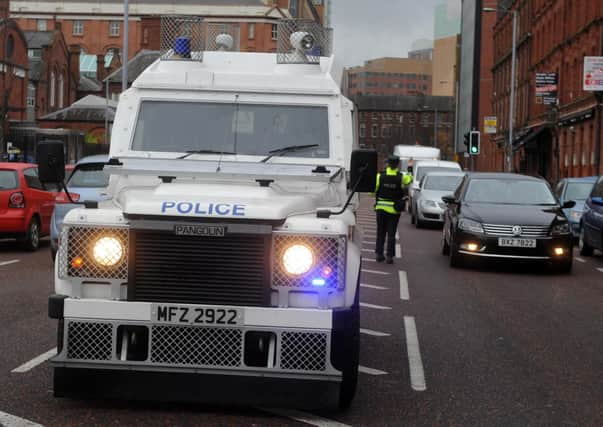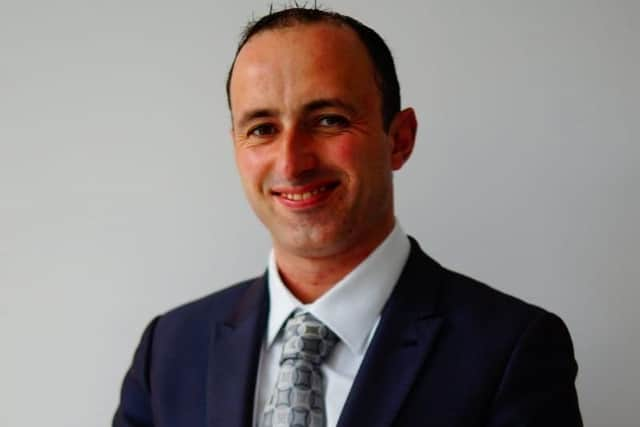The PSNI over-stepped their powers on lockdown powers, then appeared to query criticism of them


First Coronavirus, and then economic woes — now a cull of civil liberties.
Instinctively, we sympathise with hardworking police officers at this most difficult time.
Advertisement
Hide AdAdvertisement
Hide AdIt is comforting to imagine that police excesses were mere teething troubles (‘The police’s made-up coronavirus law ought to unsettle anyone who understands democracy,’ Sam McBride, April 18).


It was doubtless a new recruit, bored of making tea, who fabricated Facebook edicts for the good folks of Larne. Perhaps Causeway Coast officers were distracted by the fine scenery while ticketing people for buying food.
Yet it is difficult to make excuses for the premeditated statements of senior police officers. Issuing clarification, Assistant Chief Constable Alan Todd said:
“Is your journey necessary and is it reasonable? These are the questions you need to ask yourself before you travel because the test of reasonableness and necessity are the parameters within which police officers must operate.”.
Advertisement
Hide AdAdvertisement
Hide AdThis is an astonishing statement. While requiring a ‘reasonable excuse’, the legislation nowhere mentions ‘necessity’ as a condition of leaving the house. Never. Not once.
The commentary of a Trappist monk on the 2020 Olympics could not be more profoundly silent.
When pressed to justify this, the PSNI noted that the legislation referred to activities such as exercise or giving blood as ‘a need’.
Our police leadership did not seem to notice that the legislation ‘includes’ such needs as reasonable excuses, so allowing the possibility of others. Equally oblivious that a general ‘need’ is not a particular ‘necessity’, they remained unperturbed that no other UK police force extracted this meaning - despite operating under the same wording.
Advertisement
Hide AdAdvertisement
Hide AdSo we were left with the peculiar situation where the Assembly had determined that exercise or obtaining food was a ‘need’, but the PSNI was taking upon itself to question whether any particular form of exercise or food purchase was a ‘necessity’. Aside from democratic implications, this ‘necessity’ test is unattainably high.
I have a need of nutrition, but it is hardly a ‘necessity’ that I munch on this particular Granny Smith at this set time. The Assembly says I can take reasonable exercise. “Ah”, counters our officer, ‘but is it necessary to walk down this deserted lane? What if you are tempted to take a photograph or allow your child to pick some flowers? You could run on the spot in your kitchen, preferably while self-flagellating for doubting our advice”.
On the 28th April the PSNI, together with the Department of Health, issued a further statement. Happily, all tests of necessity have gone the way of the dodo, and we may hope they rest in peace. Radically, the police now intend to follow the law, applying a test of ‘reasonable excuse’.
While a further explanation that reasonable excuse refers not to the intentions of the individual but government policy is unusual, let us be charitable. Well done.
Yet the final sentence of the statement is sobering:
Advertisement
Hide AdAdvertisement
Hide Ad“We are deeply concerned that the current discourse may serve to undermine public confidence in the overall regulations, and encourage some people to ignore the strong guidance from the NI Executive with potentially devastating consequences.”.
It is unclear that the police should act as cheerleader for the wisdom of any government legislation. Yet regardless of how many laws are made up, or how inaccurate statements seem, senior police are “deeply concerned” at public comment on the issue. Nothing to do with me, Gov’!
This apparent indifference to free speech in the very body supposed to guard our liberty: that is what deeply concerns me.
• Andrew Clarke is a councillor for Coast Road, Mid and East Antrim